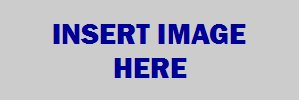USS Coronado (PF-38)
|
|
 insert caption here (insert link to larger image here) | |
| Career | |
|---|---|
| Launched: | 17 June 1943 |
| Commissioned: | 17 November 1943 |
| Fate: | transferred to Soviet Union, then Japan, final fate unknown |
| General Characteristics | |
| Displacement: | 1296 tons |
| Length: | 304 ft (93 m) overall |
| Beam: | 37.5 ft (11.4 m) |
| Draft: | 13.7 ft (4.2 m) |
| Propulsion: | two 5500 horsepower (4.1 MW) turbines, two shafts, three boilers |
| Speed: | 20 knots (37 km/h) |
| Complement: | 190 officers and men |
| Armament: | two three inch (76 mm) 50-caliber guns, two twin 40 mm guns, nine 20mm guns, one hedgehog depth charge projector, eight Y-gun depth charge projectors, two depth charge racks |
USS Coronado (PG-146/PF-38), a Tacoma-class patrol frigate, was the first ship of the United States Navy named for Coronado, California, a city adjacent to Naval Air Station North Island in San Diego, California.
Her keel was laid down by the Consolidated Steel Corporation of Los Angeles, California, under a Maritime Commission contract (MC Type T. S2-S2-AQ1). She was originally authorized as Gunboat (PG-146), but was redesignated Patrol Frigate (PF-38) on 15 April 1943. She was launched 17 June 1943 sponsored by Mrs. J. R. Crutchfield and commissioned on 17 November 1943 with Lieutenant Commander N. W. Sprow, USCG, in command.
Coronado sailed from San Diego, California, on 8 February 1944 for convoy escort duty to Nouméa and Cairns, Australia, en route to New Guinea, arriving 25 March. After escorting troop and cargo transports to Manus to support the landings there, she returned to the New Guinea area for the operations in the western part of that island, taking part in the landings on Biak from 28 May to 17 June on Cape Sansapor from 15 August to 18 August, and on Morotai on 15 September.
She sailed from Humboldt Bay 10 October 1944 to join in the Leyte operation, and served on escort and patrol duty between Leyte and New Guinea until 15 December. After overhaul at Boston, Massachusetts, and refresher training in Casco Bay, Coronado sailed for Seattle, Washington, arriving 26 April 1945. She got underway for Alaska on 7 June, and on 25 June at Cold Bay, received four Soviet officers and 45 men aboard for training.
Coronado was decommissioned 12 July 1945 and transferred to the Soviet Union under Lend-Lease. Returned to the United States at Yokosuka on 16 October 1949, Coronado was placed in reserve there until 14 January 1953 when she was transferred to Japan under the Mutual Assistance Program.
Coronado received four battle stars for her World War II service: the Bismarck Archipelago Operation, the Hollandia Operation, the Western New Guinea Operation and the Leyte Gulf Operation.
See USS Coronado for other ships of this name.
See also
| Tacoma-class frigate |
| Tacoma | Sausalito | Hoquiam | Pasco | Albuquerque | Everett | Pocatello | Brownsville | Grand Forks | Casper | Pueblo | Grand Island | Annapolis | Bangor | Key West | Alexandria | Huron | Gulfport | Bayonne | Gloucester | Shreveport | Muskegon | Charlottesville | Poughkeepsie | Newport | Emporia | Groton | Hingham | Grand Rapids | WoonsocketDearborn | Long Beach | Belfast | Glendale | San Pedro | Coronado | Stoddert | Eugene | El Paso | Van Buren | Orange | Corpus Christi | Hutchinson | Bisbee | Gallup | Rockford | Muskogee | Carson City | Burlington | Allentown | Machias | Sandusky | Bath | Covington | Sheboygan | | Abilene | Beaufort | Charlotte | Manitowoc | Gladwyne | Moberly | Knoxville | Uniontown | Reading | Peoria | Brunswick | Davenport | Evansville | New Bedford | Lorain | Milledgeville | Orlando | Racine | Greensboro | Forsyth | |
| List of frigates of the United States Navy |
